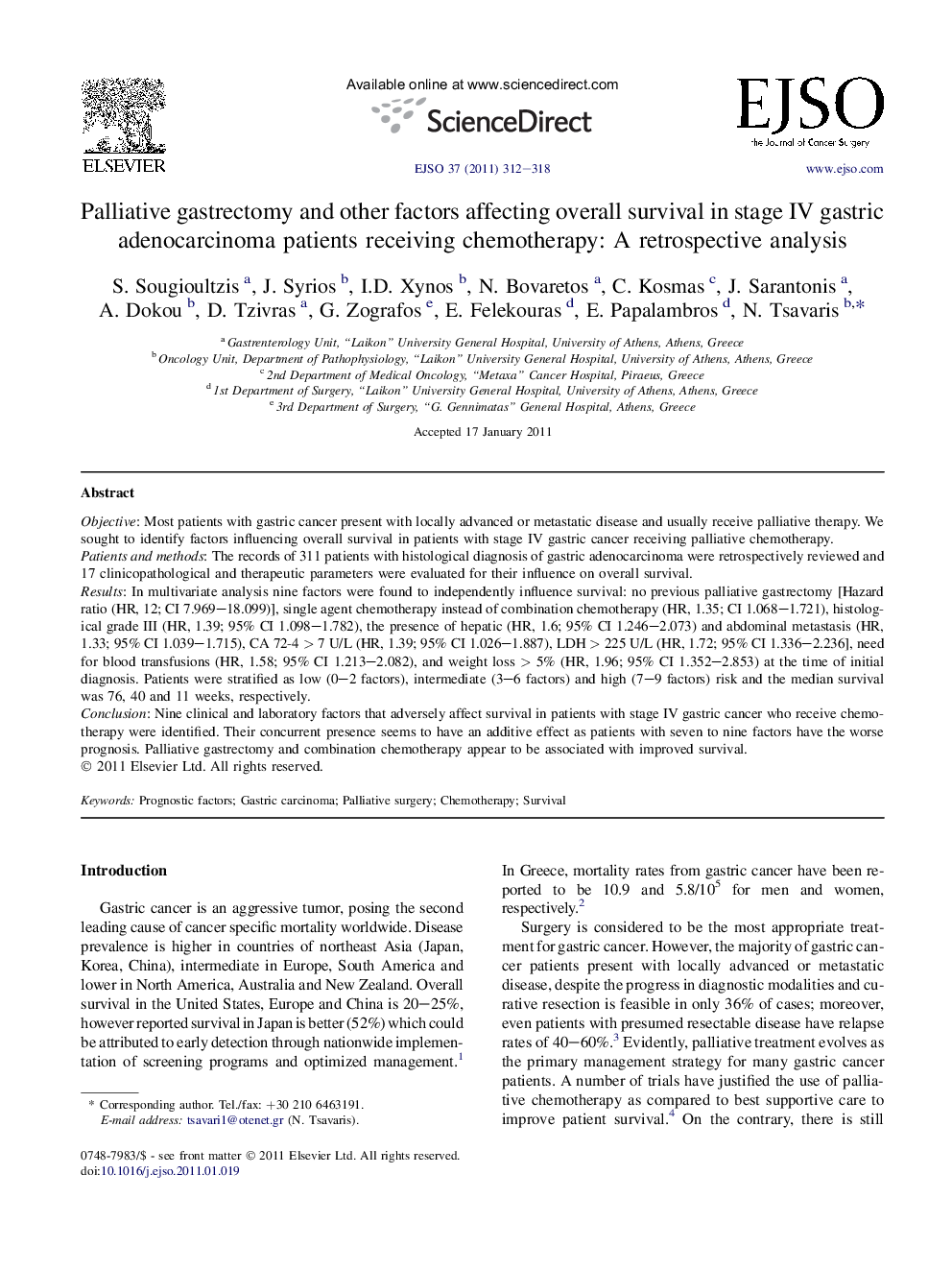| Article ID | Journal | Published Year | Pages | File Type |
|---|---|---|---|---|
| 3986708 | European Journal of Surgical Oncology (EJSO) | 2011 | 7 Pages |
ObjectiveMost patients with gastric cancer present with locally advanced or metastatic disease and usually receive palliative therapy. We sought to identify factors influencing overall survival in patients with stage IV gastric cancer receiving palliative chemotherapy.Patients and methodsThe records of 311 patients with histological diagnosis of gastric adenocarcinoma were retrospectively reviewed and 17 clinicopathological and therapeutic parameters were evaluated for their influence on overall survival.ResultsIn multivariate analysis nine factors were found to independently influence survival: no previous palliative gastrectomy [Hazard ratio (HR, 12; CI 7.969–18.099)], single agent chemotherapy instead of combination chemotherapy (HR, 1.35; CI 1.068–1.721), histological grade III (HR, 1.39; 95% CI 1.098–1.782), the presence of hepatic (HR, 1.6; 95% CI 1.246–2.073) and abdominal metastasis (HR, 1.33; 95% CI 1.039–1.715), CA 72-4 > 7 U/L (HR, 1.39; 95% CI 1.026–1.887), LDH > 225 U/L (HR, 1.72; 95% CI 1.336–2.236], need for blood transfusions (HR, 1.58; 95% CI 1.213–2.082), and weight loss > 5% (HR, 1.96; 95% CI 1.352–2.853) at the time of initial diagnosis. Patients were stratified as low (0–2 factors), intermediate (3–6 factors) and high (7–9 factors) risk and the median survival was 76, 40 and 11 weeks, respectively.ConclusionNine clinical and laboratory factors that adversely affect survival in patients with stage IV gastric cancer who receive chemotherapy were identified. Their concurrent presence seems to have an additive effect as patients with seven to nine factors have the worse prognosis. Palliative gastrectomy and combination chemotherapy appear to be associated with improved survival.
